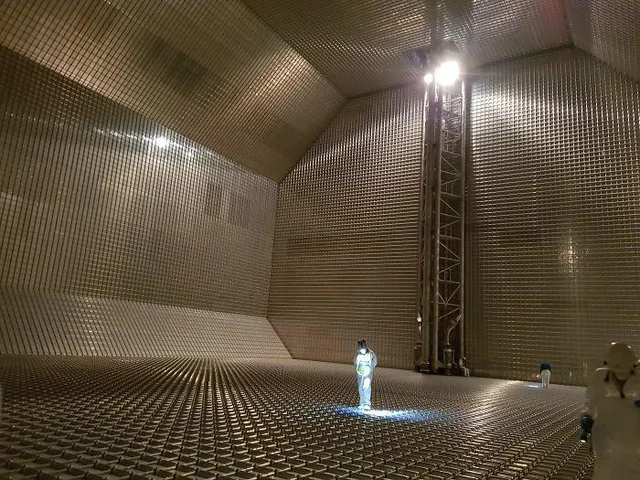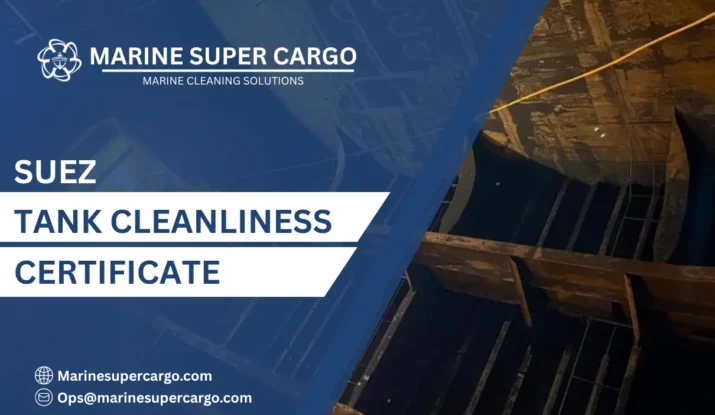Navigating the Certification Process at Suez Port
Obtaining a Suez tank cleanliness certificate represents a fundamental requirement for vessels loading cargo or demonstrating compliance with international standards at Egyptian ports. This official documentation verifies that cargo tanks meet specified cleanliness levels, protecting cargo quality and ensuring regulatory compliance. At Marine Super Cargo, we streamline the entire certification process, helping vessel operators secure necessary documentation efficiently while meeting all technical requirements.
The Suez tank cleanliness certificate serves multiple critical purposes in maritime operations. Charterers require these certificates before permitting cargo loading, ensuring tanks will not contaminate valuable products. Terminal operators demand certification proving vessel readiness for their facilities. Port authorities use these documents to verify environmental compliance during inspections.
MARPOL and IMO Framework for Certificate Standards
MARPOL Annex I and Annex II establish international standards that directly influence Suez tank cleanliness certificate criteria. These regulations specify acceptable residue levels, cleaning methodologies, and environmental protection measures that must be demonstrated during certification inspections.
The IMO provides comprehensive guidelines through various codes and circulars that define tank cleanliness grades. The Suez tank cleanliness certificate system incorporates these international standards, ensuring certificates issued at Egyptian ports gain worldwide recognition and acceptance by cargo interests.

Preparing Tanks for Certification Inspection
Successful Suez tank cleanliness certificate acquisition begins with thorough tank preparation. Vessel crews must complete all required cleaning operations before scheduling surveyor attendance. This preparation includes multiple washing cycles using appropriate methods—hot water washing, cold water rinsing, or specialized chemical cleaning depending on previous cargo and next cargo requirements.
Gas-freeing procedures must achieve safe atmosphere conditions before surveyors can enter tanks for Suez tank cleanliness certificate inspections. Portable gas detection equipment confirms oxygen levels exceed 20.8% and toxic vapor concentrations remain below permissible exposure limits. Without proper gas-freeing, inspections cannot proceed regardless of visual cleanliness.
Scheduling Surveyors and Conducting Inspections
Suez tank cleanliness certificate applications require advance scheduling with approved surveyors operating in the Suez region. Marine Super Cargo maintains established relationships with qualified surveyors, expediting appointment arrangements and ensuring surveyor availability aligns with vessel operational schedules.
During Suez tank cleanliness certificate inspections, surveyors systematically examine tank interiors, documenting observed conditions through detailed reports. They assess bulkhead surfaces, structural frames, heating coils, ladders, and bottom plating for residues, rust scale, coating damage, or other defects potentially affecting cargo quality.
Understanding Certificate Grades and Specifications
The Suez tank cleanliness certificate system recognizes several cleanliness grades reflecting different preparation levels. “Cargo Free” certificates indicate previous cargo removal with possible slight staining remaining. This grade suffices for many compatible cargo transitions where absolute cleanliness is unnecessary.
“Water White” represents a higher Suez tank cleanliness certificate standard demonstrating no visible residues or discoloration. This grade applies to most chemical cargoes and refined petroleum products requiring greater cleanliness assurance than basic cargo-free conditions provide.
For comprehensive guidance on achieving various cleanliness standards, explore our detailed resources on advanced tank cleaning techniques and cargo compatibility considerations.
Certificate Validity and Re-Inspection Requirements
Suez tank cleanliness certificate validity typically extends 24 to 72 hours after issuance, depending on tank conditions and protection measures implemented. Vessels must load cargo within validity periods or secure re-inspection before loading operations commence. Certificate expiration requires complete re-examination and additional surveyor fees.
Maintaining certificate validity requires proper tank preservation. Once certified, tanks should remain sealed preventing contamination from atmospheric moisture, rust formation, or foreign material ingress. Opening tanks or conducting work inside certified spaces invalidates certificates regardless of time elapsed since issuance.
Cost Factors and Processing Times
Suez tank cleanliness certificate costs encompass surveyor fees, laboratory analysis charges, and potential re-inspection expenses. Fees vary based on vessel size, tank quantity requiring certification, and complexity of examinations performed. Advance quotations from surveyors enable accurate budgeting for these essential services.
Processing times for Suez tank cleanliness certificate issuance typically range from same-day to 48 hours depending on inspection findings and laboratory testing requirements. Straightforward visual inspections yield rapid results, while sample-based certifications require laboratory turnaround time before certificate finalization.
Marine Super Cargo coordinates all aspects of Suez tank cleanliness certificate acquisition, managing surveyor scheduling, inspection logistics, and documentation processing to optimize efficiency while ensuring compliance with all technical requirements.
Frequently Asked Questions
Q1: Can vessels obtain tank cleanliness certificates while anchored at Suez Roads?
Yes. Approved surveyors conduct inspections at anchorage, berth, or during port stays. Advance arrangements ensure surveyor availability at desired locations, though berthed vessels offer easier access for thorough examinations.
Q2: How many tanks can be certified under a single certificate?
Certificates can cover individual tanks or multiple tanks depending on requirements. Each certified tank receives specific notation on the certificate documenting its cleanliness grade and suitable cargo applications.
Q3: Are Suez-issued tank cleanliness certificates recognized internationally?
Yes. Certificates issued by approved surveyors at Suez following IMO standards gain worldwide recognition. Charterers and terminals globally accept these documents when issued by qualified, reputable surveying companies.
Q4: What happens if cargo loading is delayed beyond certificate validity?
Expired certificates require re-inspection before loading operations. Surveyors must verify tanks maintained cleanliness during the delay period. Additional fees apply for re-inspection services regardless of tank conditions.
Q5: Can certificates specify multiple cargo types as suitable for loading?
Yes. Certificates often list several compatible cargo types suitable for loading based on achieved cleanliness grade. This flexibility benefits operators with uncertain cargo nominations or multiple loading options.
For professional assistance obtaining Suez tank cleanliness certificates and comprehensive cleaning services, contact Marine Super Cargo today.


